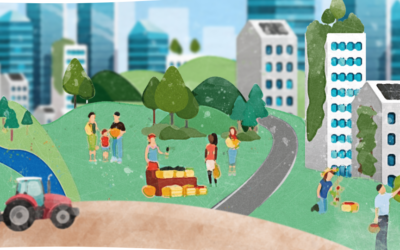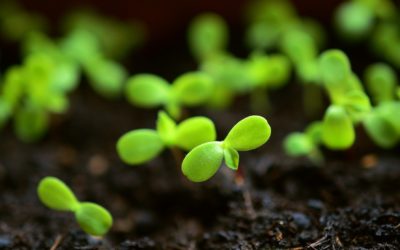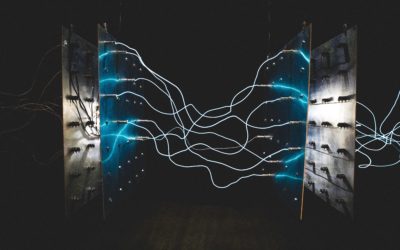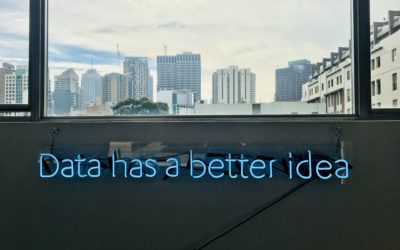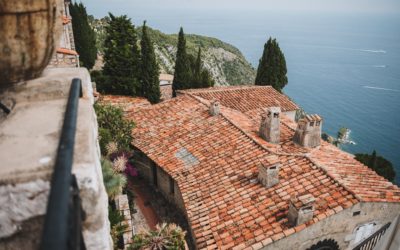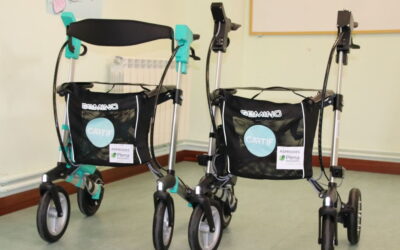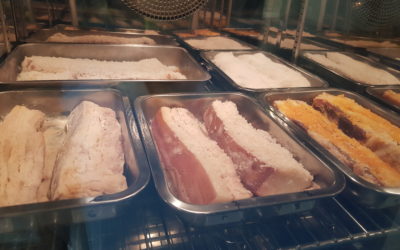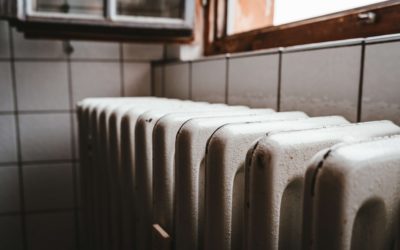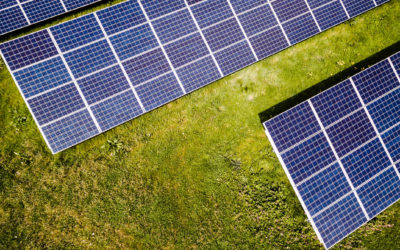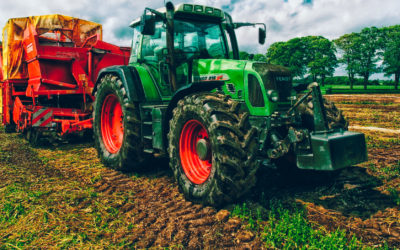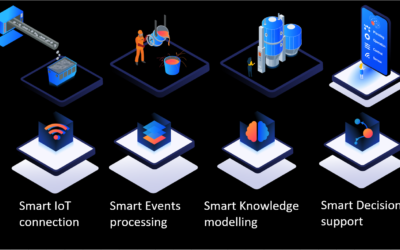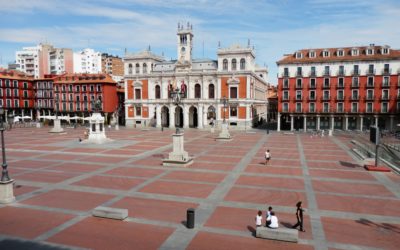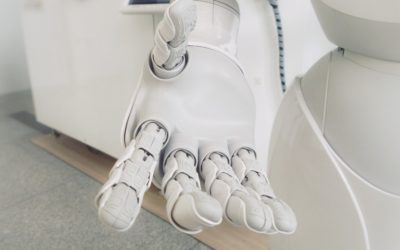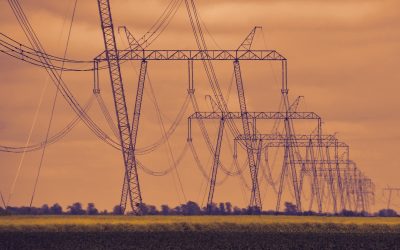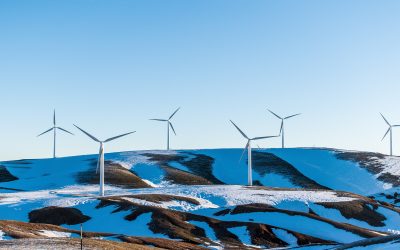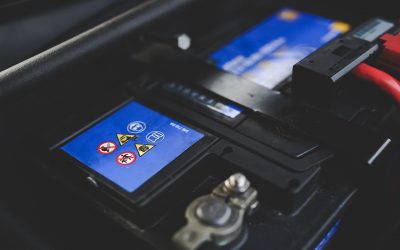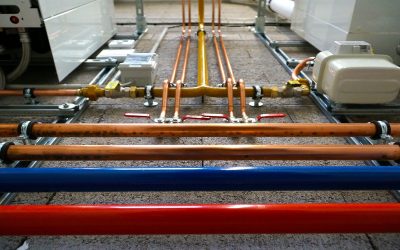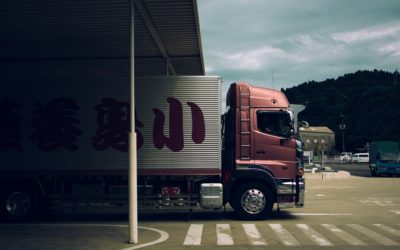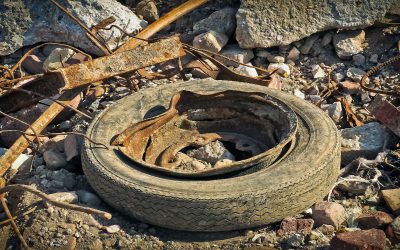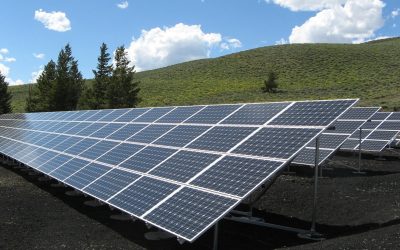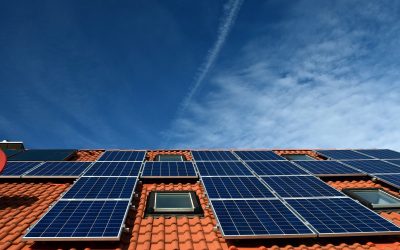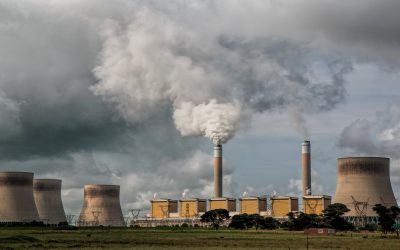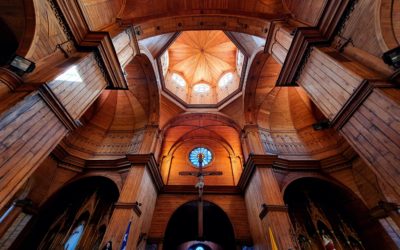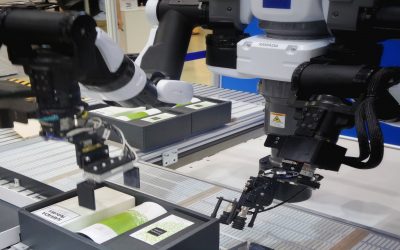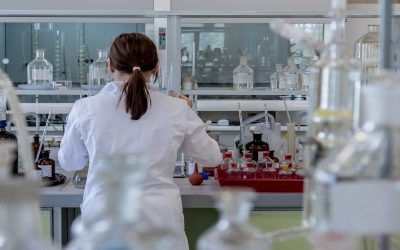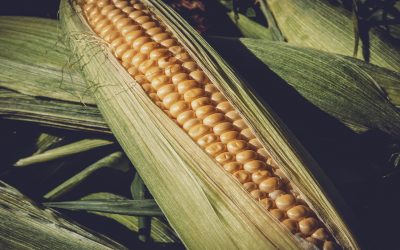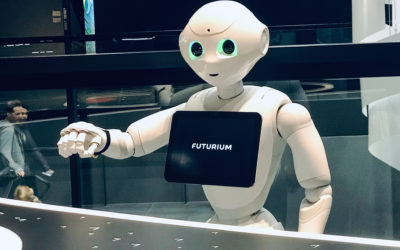CARTIF projects
Agrigenomics and next-generation sequencing technologies
Description
The AGRIGENOMICS AND NEW GENERATION SEQUENCING TECHNOLOGIES research line seeks to implement advanced solutions to solve various problems linked to the agro-forestry and food sectors in Castilla y León, such as soil degradation, low agricultural productivity or the incidence of pests and diseases, considering the entire plant-soil ecosystem as a whole and through a multidisciplinary approach that encompasses agro-biotechnological, chemical-analytical and agronomic methodologies.
Objectives
- Agronomic crop management.
- Monitoring and evaluation of agroforestry systems.
- Research on microbial biodiversity and monitoring of changes in ecosystems through environmental DNA sequencing and DNA metabarcoding.
- Improvement of crop productivity, adaptation to climate change and integrated control.
- Improvement of traditional agro-ecological practices.
Actions
a) Study and monitoring of the biodiversity of agroforestry soils in the region using environmental DNA and metabarcoding DNA analysis methods to determine the distribution, abundance, seasonal change and migration of species present in environmental samples.
b) Study of the microbiome of agricultural soils by profiling complete microbial communities in complex environmental samples, in such a way that the understanding of the different microbial populations present allows to determine the most suitable or adequate practices for the different agricultural soil profiles studied and to generate guidelines for the application of solutions or implementation of efficient agricultural practices that benefit both the performance of the agricultural activity and the regeneration and resilience of the soil agroecosystem.
c) Study and development of bioproducts with agronomic potential, which will make it possible to achieve a substantial improvement in crop productivity and their adaptation to different adverse conditions. Work will also be done on improving more traditional agro-ecological practices, such as crop rotation, increasing pollinators and natural predators for an integrated fight against pests and diseases, natural control of adventitious plants, etc. In addition, it is planned to investigate the biometric and photosynthetic activity of trees and plants, which will allow an assessment of climate change and improvement of the health of plant masses in both agricultural and forestry crops.
Expected Results
- Develop and maintain sustainable rural and urban environments, linked to efficient and sustainable agricultural and forestry productivity.
- Implement agroforestry solutions as a sound method to address climate change and its challenges.
- Research and understand the effects of climate change on forest stands, urban green spaces and agricultural crops in order to develop mitigation strategies.
- Address the phenomenon of “forest decline” through detailed studies of the causes and effects on forest stands.
- Investigate the fragility of crops to climate change in order to develop more resilient and profitable agricultural practices.
R&D Line
- Research on new systems and crop improvement: biological control, adventitious control, plant rotation and association, pest bio-resistance, yield improvement, RNAi and plant genetics strategies and urban agriculture solutions.
Subvención de Apoyo a la inversión para la mejora de las capacidades científicas y tecnológicas de los Centros Tecnológicos de la Comunidad de Castilla y León (2023)
File: 2023 CCTT 06
![]()
![]()
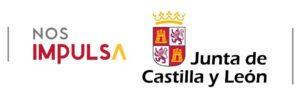
Total Budget: 124,970€
CARTIF Grant: 62,485€
Duration: 02/10/2023 – 31/05/2024
Co-financed with ERDF funds contributing to the Policy Objective “OP1: A more competitive and smarter Europe, promoting innovative and intelligent economic transformation and regional connectivity to information and communication technologies”.
Responsible
Bárbara Díez Rodríguez
Agrifood and Processes Division
Networking
Other projects:
FUSILLI
FUSILLI project focuses on supporting cities to facilitate their transition towards more sustainable food systems, in line with Food2030 priorities. Combines the expertise of 34 partners from 13 countries including cities, universities, SMEs, NGOs and industries.
0e-Mision
0e-MISION project outlines a more sustainable energy future, with combustion energy installations without chimneys that are capable of producing electrical and thermal energy at any scale, in a clean, safe, efficient way and more cheap.
I-NERGY
The main objective of I-NERGY is to deliver an energy specific open modular frameork for supporting AI-on-demand in the energy sector.
I-NERGY contributes significantly to achieve a techno-economic optimal mangement of the EPES (Electric Power & Energy Services)
EnergyChain
EnergyChain goal is to use Blockchain to develop a system that will support the energy exchange between prosumers without the need of a central entity in charge of the managing.
BUILTHUB
BUILTHUB aims to develop a strctured and inclusive reliable data collection approach on the EU building stock, as well as an easy to access & use datahub, in the shape of a strctured web-based platform.
AI REGIO
AI REGIO project aims at supporting AI-driven Digital Transformation of European Manufacturing SMEs, by up-scaling and coordinating different regional smart specialization strategies, by integrating DMPs and DIHs.
frESCO
frESCO aims to engage with ESCOs and aggregators and enable the deployment of innovative business models on the basis of novel integrated energy service bundles that properly combine and remunerate local flexibility for optimizing local energy performance both in the form of energy efficiency and demand side management.
REVAMP
The main objective is to develop, adapt and apply new technologies to improve the efficiency in the use of raw materials and energy of processes that take place on metallurgy industries.
RURITAGE
RURITAGE enables rural regeneration through cultural and natural heritage (CNH). Has selected 13 rural areas as Role Models, i.e. successful cases regenerated thanks to CNH in 6 Systematic Innovation Areas.
DELOREAN
DELOREAN aims to obtain new raw materials from the treatment of waste generated in a critical sector in the región, the automotive industry. The three wastes investigated (tires, lubricating oils and polypropylene) are generated in high quantities and their polluting nature makes it necessary to develop new ways for their management and use.
COLOR
The “COLOR” project is a collaborative business initiative aimed at providing solutions to one of the most important needs of the food sector today: the reduction of acrylamide in industrially processed foods.
PROCURA
PROCURA aims at the realisation of two innovative social and health care solutions for active ageing and independent living, going beyond the current specifications available on the market and allowing the piloting of innovative technologies in the experimental environment of a living lab.
NUTRIBER
Application of new technologies on the development of a nutritionally improved iberian bacon. Reducing the sodium content in the formulation and limiting nitrites/nitrates.
Auto-DAN
The Auto-DAN project aims to enable homes and small businesses across the EU to optimize their energy consumption and provide and assessment of the live energy performance of a building. The solution will focus on the assistive role automation will have in buildings.
LowUP
LowUP will develop and demonstrate three new efficient heating and cooling technologies that will reduce CO2 emission and primary energy consumption. Heating and cooling account for 50% of the EU´s annual energy consumption.
HySGRID+
The objective of the Cervera HySGRID+ network is to strengthen the technological capacity of Spanish Technology Centres with a high level of complementarity and promote their solid cooperation with the ultimate aim of researching and developing new technological solutions that facilitate the creation of local energy positive balance communities (LEPC)
REGEN-BY-2
REGEN-BY-2 will develop a novel multi-generation, all-in-one integrated energy plant capable of converting any type of RES thermal sourcef in energy vectors such as electric, heating and-or cooling powers.
AGROVIS
“Intelligent Visual Computing for products/processes in the agri-food sector” is an industrial research project framed in the field of computer vision (digital enabler of Industry 4.0) associated with the agrifood sector.
CAPRI
Overall CAPRI objective is to develop, test and experiment an innovative cognitive automation platform (CAP) to achieve the digital transformation of the European process industry enabled by cognitive solutions that give operation flexibility to existing process industries
EACC Val
EACC Val project aims to analyze the influence of climate change on the municipality of Valladolid, identifying climate risks and vulnerabilities and proposing actions that affect its future climate adptation.
NEMO
NEMO aims to create a turn-key solution through which new systems are integrated into existing infrastructure to empirically measure emissions and noise emitted by individual vehicles
BioSFerA
BioSFerA aims to develop a cost-effective interdisciplinary technology to produce sustainable aviation and maritime fuels. The overall process, combining thermochemical, biological and thermocatalytic parts is based on the gasification of biomass and other biogenic waste and the 2-stage fermentation of the produced syngas.
ITEHIS
Inovative and digital technologies to proceed to the technical inspection of historical buildings for public or private use. The methodology proposed is based on the HBIM (Heritage BIM) paradigm
Intrusión-G4
The Intrusion-G4 project seeks new technologies to overcome the challenge of increasing the degree of security of the intrusion detection sensors currently available on the market.
IDET
IDET is an innovative project aimet at creating a set of technologies that backbone an integrated development environment that facilitates the creation of rehabilitation therapies for robotic systems.
MiniStor
MiniStor aims at designing and producing a nvel compact integrated storage system for achieving a sustainable heating, cooling and electricity storage adaptable to residential buildings.
MUSEGRIDS
The MUSE GRIDS project wants to contribute to the development of interconnected local energy network management systems to make better use of the synergies between these networks.
ATELIER
ATELIER is a demonstration project whose main objective is the design, implementation and validation of Positive Energy Districts (PEDs) in Amsterdam and Bilbao
INTERPRETER
INTERPRETER will overcome these limitations by means of a modular grid management solution consisting of a set of 10 software applications for an optimal design, planning, operation and maintenance of the electricity grid
TALENT
The TALENT project aims to increase the flexibility of the electrical system by reducing the cost associated with the integration of batteries in the electrical network.
REWARDHeat
The overall objective of REWARDHeat is to demonstrate a new generation of low-temperature district heating and cooling (DHC) networks, which will be able to recover renewable (RES) and residual (WH) heat available at low temperatures.
Transforming Transport
Transforming Transport project demonstrated, in a realistic, measurable an replicable wway the transformations that Big Data can bring to the mobility and logistics market. TT adress 13 pilots in 7 domains.
BRESAER
BRESAER is a demonstrative project whose objective is the development of a cost-effective, adaptable and industrialized envelope solution for the rnovation of buildings.
LIFE LANDFILL BIOFUEL
The aim of LIFE LANDFILL BIOFUEL is to demonstrate the technical performance of a cost effective solution based on the implementation of new exploitation techniques of the waste cells to enhance the biogas production
LOCOMOTION
LOCOMOTION will design a set of IAMs that will provide politicians and other stakeholders with assessment tools to analyze the feasibility, effectiveness and costs of the different sustainability policies and strategies.
SunHorizon
The SunHorizon project aims to demonstrate that combining technologies (TPs) such as solar panels and managed heat pumps with a controller with predictive, proactive and self-learning capabilities saves energy.
BIOMOTIVE
The BIOMOTIVE project aims to demonstrate the production of new high-performance biomaterials (thermoplastic polyurethane, foams and fibres) for the automotive sector, with the objective of revolutionising the market.
ELISE Energy Pilot
The aim of the ELISE action is to promote a coherent and consistent approach to the sharing and reuse of location data across borders and sectors.
SO WHAT
SO WHAT project aims to develop and validate an integrated software for auditing industrial process, planning and simulation of waste heat and cold (WH/C) valorisation systems towards the identification of economically viable scenarios where WH/C and renewable energy sources (RES) cooperate to match local demand.
SocialRES
The SocialRES project seeks to increase scientific knowledge about the non-technological aspects that prevent the adoption of social energy alternatives such as cooperatives, aggregators or crowdfunding platforms.
ZEOCAT-3D
The ZEOCAT-3D project addresses the conversion of methane, from natural gas and biogas, into aromatic hydrocarbons of high added value and easily transportable
INSITER
INSITER eliminate the gaps in quality and energy-performance between design and realization of energy-efficient buildings based on prefabricated components.
TRREX
The TRREX project (Extended Range Robot Enabling Technologies for the Flexible Factory) investigates and develops technologies that contribute to the deployment of mobile industrial robots for the factories of the future. These systems will increase the flexibility of the plants and allow the optimization of industrial processes, improving their productivity.
AI4EU
AI4EU project aims to make available to users resources based on Artificial Intelligence (AI) that facilitate scientific research and innovation.
INBEC
INBEC Project try to promote and develop a sustainable economy through innovation and business cooperation. To this end, it is proposed to use a methodology that maximizes the potential of the Bioeconomy.
AIROSO
At AIROSO Project, progress will be made in integrating robotics into society, progressing in two directions: the coexistence of social robots with older people and human-robot interaction using robotic heads.
REPLACE
REPLACE aims at developing new methodologies to try to solve a critical environmental problem, the destruction of plastic wastes proceeding from petroleum.
NUMASTA
NUMASTA allows the development of a new generation of FRP sandwich panels for its application in the wastewater treatment sector. The distinguishing characteristic is presented in its core, based on a polyurethane foam, manufactured using formulations designed “à la carte” through a manufacturing process in a single stage where the curing process of the leathers and the foaming of the core take place in a synchronous
